Commission for Academic Support in Higher Education
Monday, 20 June 2016 - 6:14pm
Name: Atiya R. Smith, LCPC
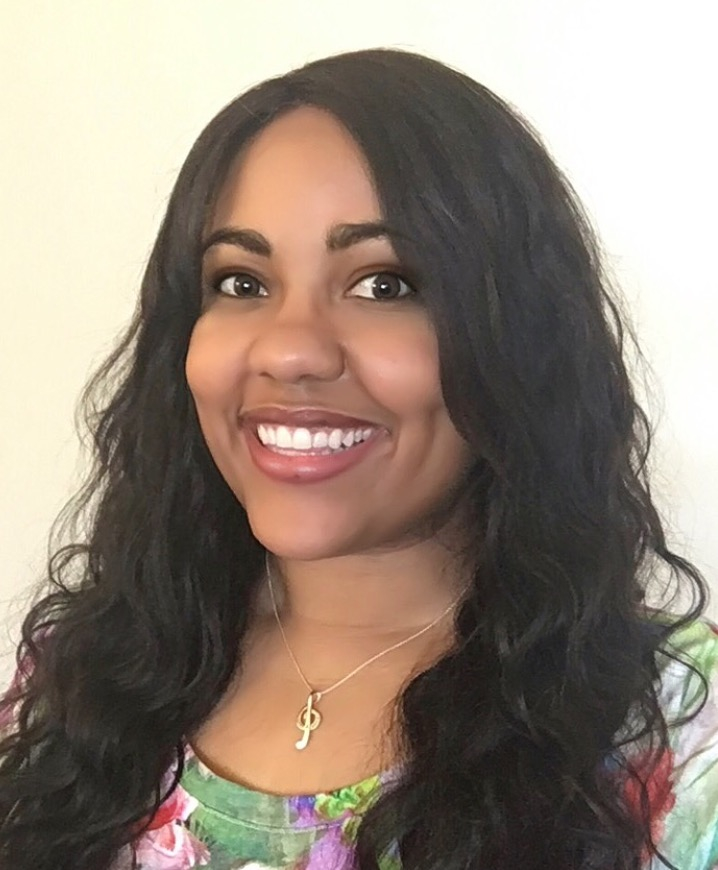
Position on Board: Co-editor of the CASHE Monograph 2016-2017
Institutions & Job Title: I am a licensed counselor and a PhD student in Counselor Education at the University of Rochester. I also support undergraduate students at two universities. I am a study skills consultant in the Center for Excellence in Teaching and Learning at the University of Rochester and also an executive functioning coach in the Spectrum Support Program at the Rochester Institute of Technology.
How long on the directorate? I started serving on the CASHE Directorate in March 2016. My first official meeting was at the 2016 Convention in Montreal, Canada.
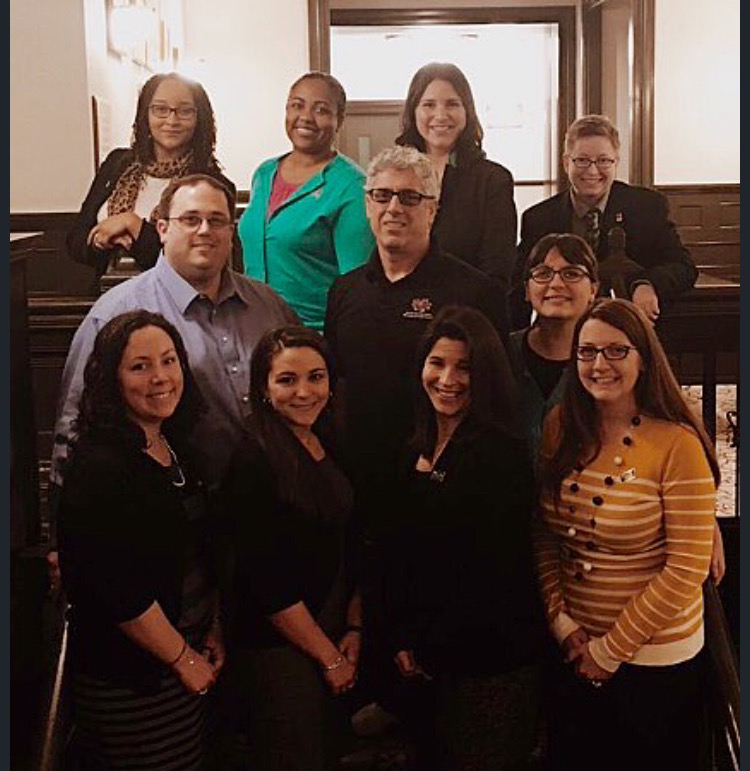
What have been some significant experiences about being engaged/ involved in ACPA CASHE? As I am a newbie to the CASHE Directorate, I don’t have many memories to share just yet; however, I must share that my experiences thus far have been wonderful! The Directorate is comprised of individuals who are not only knowledgeable and passionate about their work as higher education professionals, but are also collaborative, supportive, and friendly. I have been welcomed with open arms to the Directorate and feel that my ideas are both heard and valued. I am truly looking forward to working with, and learning from, this awesome team over the next three years!
What is your vision for the directorate and ACPA at large? My vision for CASHE is that it continues to: promote best practices in academic support, provide findings from related research, and support ACPA’s vision of providing outreach, advocacy, research, and professional development to foster student learning.
Additionally, academic support professionals have a wide range of educational backgrounds, training, roles, and institutional responsibilities. My vision for CASHE is that it continues to offer a nurturing community for a wide audience of academic support professionals and also, using the expertise on the Directorate, offers support to academic support professionals that can aid in student success. I hope that academic support professionals see CASHE as a supportive, welcoming community that not only cares about students, its members, and ACPA initiatives, but also with developing and disseminating knowledge surrounding academic support. As a co-editor of the CASHE Monograph, I plan to fully contribute to creating this community and with the dissemination of research in academic support.
I also highly value collaboration. With that, I look forward to enhancing the collaborative relationships with the Commission for Counseling and Psychological Services (CCAPS), the Coalition for Graduate Students and New Professionals, and other Commissions and Coalitions across ACPA.
What are your topical areas of interest (within and outside of ACPA CASHE)? Within CASHE, it is my hope to not only support the mission and vision of CASHE, but to also shed light to: (1) the impact of mental health on academic success, (2) the new presence of professional counselors, and those with counselor training, working in academic support roles, (3) the experiences of students of color in higher education, (4) the unique experiences of graduate students, and (5) best practices for supporting students with learning disabilities. I also hope to aid in building a bridge between academic affairs and student affairs.
Outside of CASHE, and more in the counseling realm, my research interests focus on female graduate students of color, exploring how psychological capitol shapes student experiences in higher education, the mind-body connection, and identity development in rising counselors. My professional interests include: assessment & appraisal, ethics and professional standards in counseling, counseling theory, counseling underrepresented populations, supporting students with learning disabilities, school & university-based mental health services, and integrating expressive arts into counseling practice & clinical supervision.
What do you do in your free time/outside of work? During my free time, I enjoy watching HGTV, visiting museums, completing art projects, taking Pilates classes, supporting my local girl scouts troop, relaxing at the spa, and spending time with friends and family. I also really love listening to 90’s and early 2000’s music!
Tell us one thing no one in ACPA knows about you? I am a classically trained violinist! I started playing the violin when I was around 7 years old and have been playing ever since.
The DC Youth Orchestra Program (DCYOP) is where my skills as a musician were developed and nurtured. I had such talented and caring teachers (such as Mr. Jonathan Jones, Mr. Hovayda Samandari, Mr. Virgilio Joven, and Ms. Annette Adams, to name a few) who believed in me, allowed me to see that I had a gift, and taught me to deeply appreciate classical music, music theory, and the sound of a full orchestra. Through the program, I was able to perform at the Kennedy Center, the Lincoln Theatre, the White House, Lisner Auditorium, and other venues throughout DC, MD and VA. I also did a lot of performances as a solo violinist and was a member of a performance group called “Klassic Kids”.
I attribute my love for music, my accomplishments as a violinist, and my solid foundation in classical music not only to the DCYOP, but also to my favorite private teacher growing up, Ms. Phyllis Fleming. She invested in me like I was her own daughter and I am so grateful to have had such an amazing person serving as my teacher, role model, and mentor. I also have to thank one of the founders of the DCYOP, Mr. Lyn McLain. He was my favorite conductor, a phenomenal teacher who kept me sharp, and was someone who provided genuine support and encouragement throughout my years in the DCYOP. I am extremely honored to have had the opportunity to learn from Maestro McLain and appreciate his dedication to teaching young people about music and for allowing us to experience a whole new world through music.
Music is such a powerful tool that has the ability to shape and heal lives. Professionally, I often incorporate some form of music into my sessions -whether it’s just having soft music playing in the background, utilizing music as therapy, or explaining how music has the potential to enhance academic performance, memory and concentration. In my personal life, I enjoy learning new music, teaching young musicians, playing in a community orchestra, performing with my string quintet, and listening to various types of music throughout the day. I wouldn’t be the person I am today if it weren’t for this amazing program and the caring, talented people at DCYOP. I also have to thank my parents. Sending a huge thanks to my dad for always driving me to practices, private lessons, competitions, and performances over the years regardless of the time, location or weather. I also have to send a huge thanks to my mother who spent countless hours helping me practice over the years and for being at every single performance that I have ever had. I thank them all from my heart! #SaveTheMusic
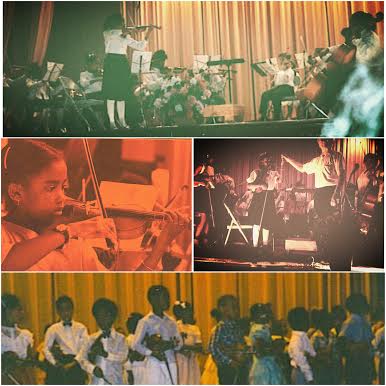
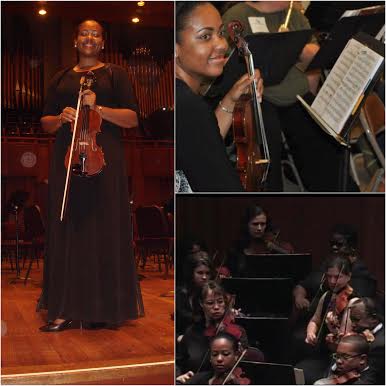
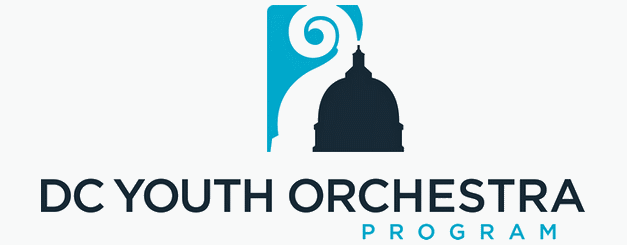
What is your favorite quote and why? Oh, it is tough to choose just one favorite quote because I have a list of quotes that are quite meaningful to me!
I really like this Milton Berle quote, “I'd rather be a could-be if I cannot be an are; because a could-be is a maybe who is reaching for a star. I'd rather be a has-been than a might-have-been, by far; for a might have-been has never been, but a has was once an are”. I recall seeing this painted on a wall when I was a kid and was confused by it. As I got older, I better understood it and see that it speaks to potential, effort, action-oriented behavior, hope, and taking a risk by focusing on your goals.
I also like the saying that goes, “A society grows great when old men plant trees whose shade they know they shall never sit in”. This is so powerful! To me, it speaks to laying the foundation and putting in work that has the potential to enhance the lives of future generations. With that, it requires a sense of selflessness and an awareness that the person putting in the hard work may not benefit directly from, or see, the fruits of their labor. In many ways, this saying can apply to our work as higher education professionals. Through advocacy efforts, the dissemination of knowledge, and other work that we are currently doing in ACPA and CASHE, we can make higher education much more fruitful for future students, institutions, and rising higher education professionals.
Is there anything else you want to share in your highlight?
As a reminder, the call for papers for the Winter 2016 edition of the CASHE Monograph Series is open! If you are interested in making a submission, please prepare an abstract (no longer than 300 words) of the submission’s content, along with the tentative title of the submission, your name, your position (if applicable), your institutional affiliation (if applicable), and a brief bio of the author(s). Conceptual, qualitative-based, personal narratives, poetry/ prose, and experiential submissions are all welcome.
All submissions should be emailed as a Microsoft Word document to acpa.cashe@gmail.com no later than June 17, 2016. If your submission is selected, drafts will be due September 16, 2016. You can find more information about the call for papers here: http://www.myacpa.org/entity/commission-academic-support-higher-education/blog/joinus-acpa-cashe-winter-2016-call-papers.
Thank you for reading my Directorate Spotlight blog post and feel free to touch base with me if you have any questions!
Have a great week,
~Atiya

